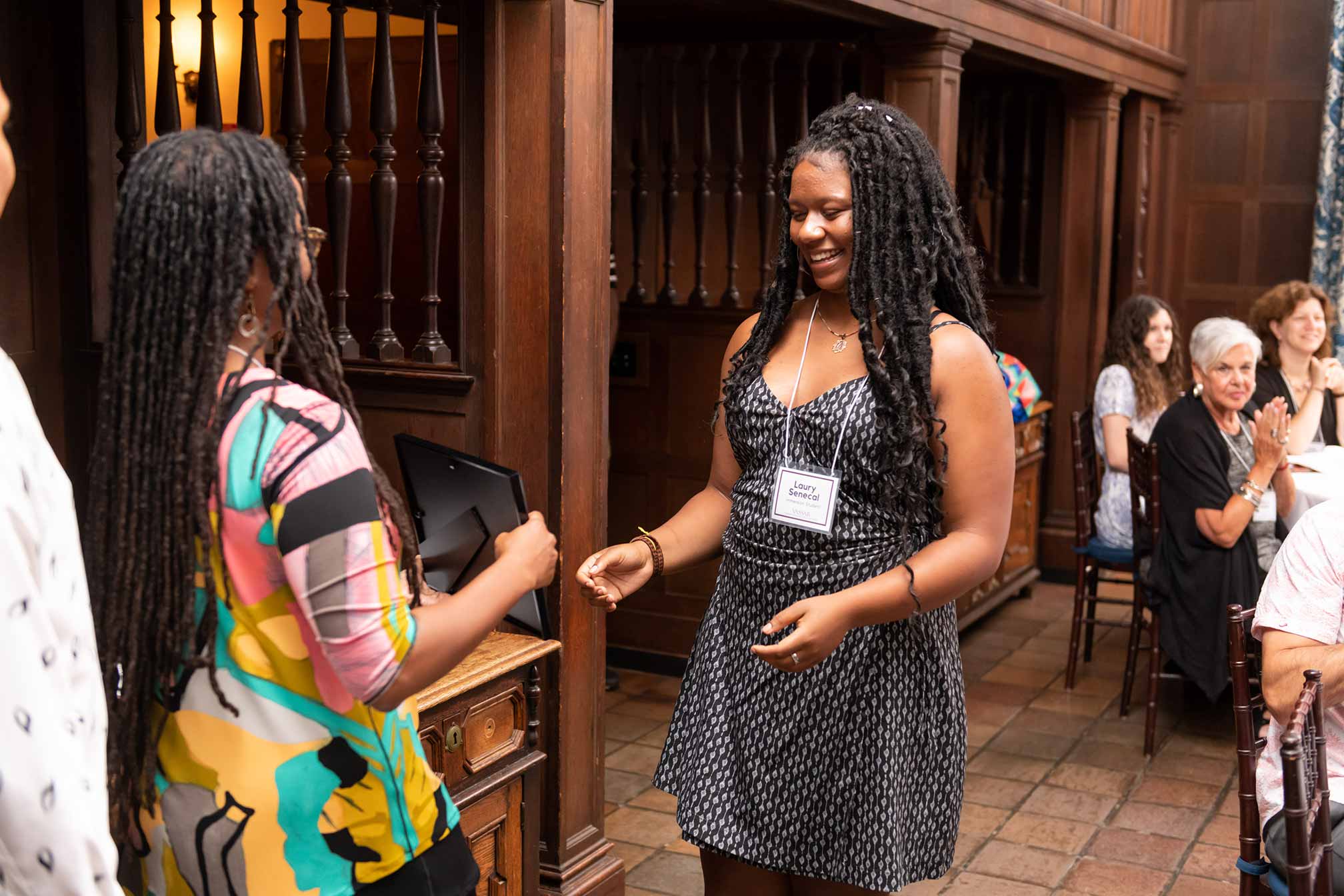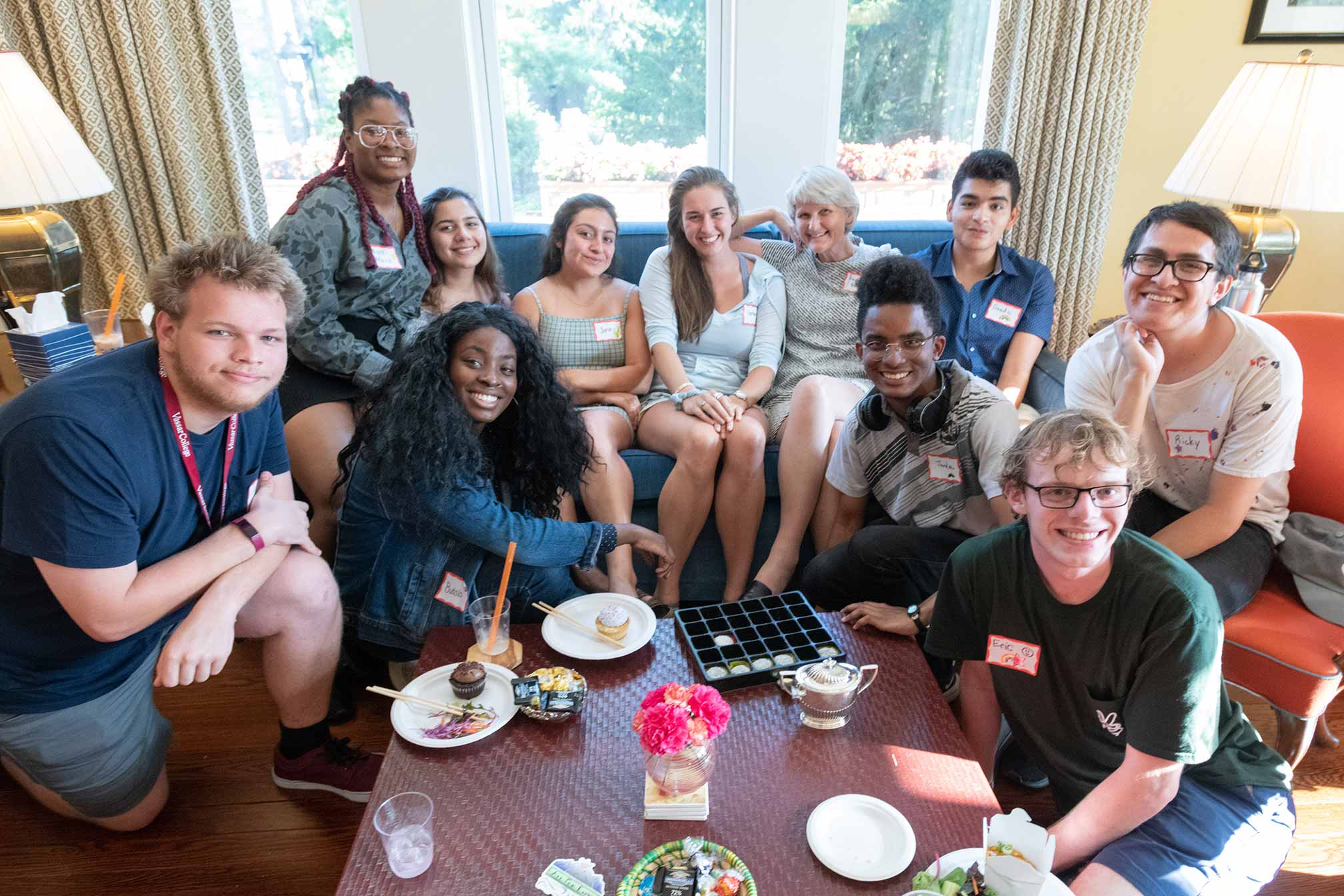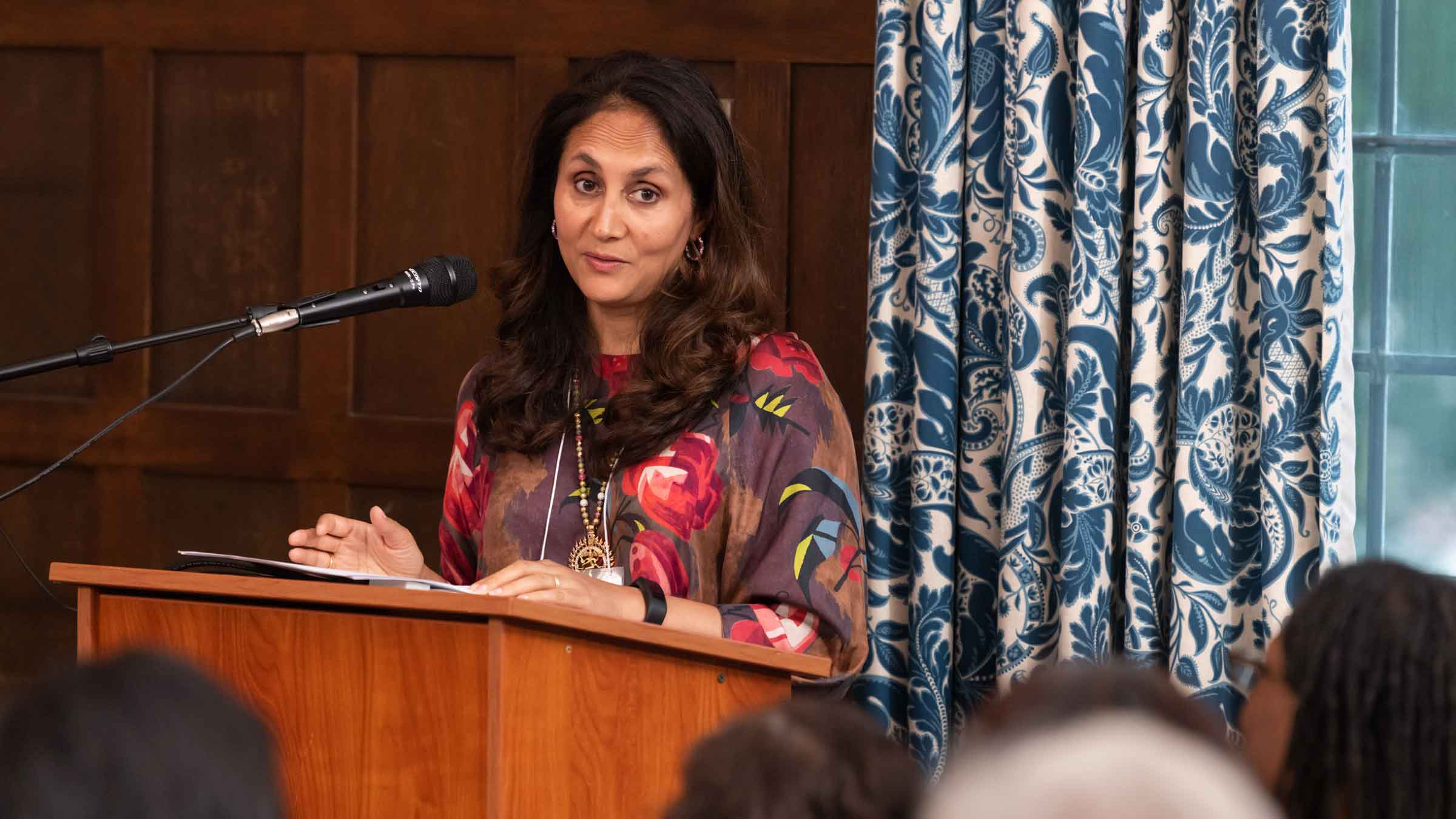Summer Immersions Program: Getting a Jump-Start on College
Summer Immersions Program: Getting a Jump-Start on College
Alex Garza says he learned he could thrive academically at Vassar while continuing to engage in volunteer work in the community, as he had done as a Boy Scout back home in Los Angeles. Laury Senecal says her anxiety about leaving her home in New Jersey to live on a campus where she knew no one subsided when she made “some immediate friendships.” Harmanvir Singh, born in Punjab, India, and now living on Long Island, says he can’t believe he’s already on a first-name basis with college President Elizabeth Bradley. These and 11 other first-year students got a jump on their college careers this summer as members of the Summer Immersion in the Liberal Arts program sponsored by Vassar’s Engaged Pluralism Initiative (EPI).
The young men and women, many of whom are the first in their families to attend college, spent four weeks on campus taking specially designed, credit-bearing courses, learning about resources the college offers, and taking part in service-based learning in the Poughkeepsie area. EPI worked closely with the Office of Community-Engaged Learning in developing these off-campus activities.
Associate Professor of Anthropology and EPI Director Candice Lowe Swift was inspired by the program for first-generation and lower-income students at Princeton University, and with support from Jon Chenette, then EPI’s Co-Principal Investigator, she met several times with its director, Khristina Gonzalez, before Chenette and Swift pitched the idea for the immersion program to administrators, students, and faculty at Vassar. The idea was met with enthusiasm. With Swift overseeing the effort, a number of Vassar employees jumped on board to plan the program and the curriculum with six other faculty members.
Swift described her vision for the program in part by explaining what it was not. “It takes a village to launch a program like this in such a short period of time. We did not build a deficit model—it’s not about ‘helping’ these students to fit into a mold,” she says. “It’s about encouraging and supporting the strong foundations for learning and community service that they already have when they get here and embracing their ideas and perspectives, encouraging them to use their backgrounds to facilitate their educational journeys at Vassar. That is the EPI model. Everybody brings something to the table, and all of it is valuable.”

Swift participated in a team-taught course called Time and Place with Assistant Professor of Political Science Taneisha Means, Assistant Professor of Physics and Science José Perillán, Associate Professor of Film Sophia Harvey, and Professor of Hispanic Studies Andrew Bush. Henry Molina ’19, EPI’s Qualitative Research and Curriculum Engagement Associate, played a key role in this course, co-facilitating discussions and reflections outside the classroom.
Swift says she and her colleagues were immediately impressed by how quickly the students embraced the subject matter. “I saw their wisdom during a class Andy Bush was conducting,” she recalls. “One of them said, ‘Our stories are our gifts.’ That struck me as connecting to the spirit of their academic interaction with Professor Bush, who asked students to bring their stories into conversation with stories from scholars, poets, and sacred texts.”
Perillán agreed. “My interactions with [the students] were delightful,” he says. “Apart from being engaging, insightful, and spontaneous in their thinking, they showed a depth of analysis that I would be happy to encounter in any of my 200-level Vassar courses. I certainly look forward to seeing these students again in the fall.”
Harvey says she had the students analyze the film Uncle Boonmee Who Can Recall His Past Lives by Thai director Apichatpong Weerasethakul. “It was inspirational to see them absorb this challenging material,” she says. “This filmmaker is not easy to grasp, but my own passion for the power of cinema was reignited by the way the students approached the material.”
Timothy Koechlin, Director of International Studies, taught a course called Global Inequalities, which examined economic, political, gender, racial, and environmental inequalities throughout history. Course material included poems by Chinese poet Xu Lizhi, films such as The Life and Times of Rosie the Riveter, and the book Born a Crime: Stories from a South African Childhood, by Trevor Noah, host of Comedy Central’s “The Daily Show.”
“Every day, I asked my students to look for evidence and signs of inequalities in their lives and in their daily encounters—on campus, on Main Street in Poughkeepsie, in their classrooms, in their schools, and in their communities,” Koechlin says. “I asked them to write about music, books, works of art, TV shows that engage—or obscure—inequalities. They delivered a wonderful array of stories. I was so impressed by these students, and I’m grateful that they’ll be able to share their insights and their stories with the rest of us over the next four years.”

The students say they thoroughly enjoyed their introduction to Vassar academics.
“Speaking up in class is something I’m not comfortable doing, but the atmosphere here is clearly that everybody’s opinion matters, and that made it easier,” says Michaela Olabisi, a resident of Lynn, MA, who plans to pursue a premedical curriculum at Vassar.
Garza says the courses he took this summer “gave me a glimpse of what a liberal arts education at Vassar will be like. It was an enlightening experience, and now I’m confident I can succeed.”

While introducing the students to Vassar’s methods of teaching and learning on campus was a primary goal of the immersion program, Swift says it was equally important to expose them to opportunities for service-based learning off campus. All of the students had host families who introduced them to the Poughkeepsie area, and they participated n applied learning in projects at the local United Way office and several other nonprofit agencies, with guided reflections conducted by Lisa Kaul at the end of each week.
Senecal and several others helped staff members at the United Way office set up a room filled with donations of furniture, clothing, and other items for families in need. “It was a great experience,” she says, “and I’ll certainly seek out other opportunities for community involvement when I start here in the fall.”
Olabisi met a pastor and her family during her stay. “We went out to dinner, and they showed me around the city,” she says. “It was nice to get to know some people outside of Vassar that I can count on for help and advice.”
Singh says he was glad to discover that the region had a lot to offer him beyond the campus. “It was great to learn that Poughkeepsie is an urban area with a diverse population,” he notes.
As he observed and engaged with the students during their stay on campus, Molina says, he saw the program fill a definite need. “During my time as a student at Vassar, I had a network of support that enabled me to be successful,” he says, “but it didn’t always feel that way. It took me all four years to find the resources that were so critical for my development as a student. This program is designed to foster that support from the first moment the students come to campus. Now they have the names of people and resources they can access whenever they need the support.”
Garza says his experiences in the immersion program convinced him that Vassar was the right institution for him. “My parents were apprehensive about me traveling all the way across the country for college,” he says, “but meeting the staff and the faculty was a big step. It was reassuring to learn there are others like me here and that there are many people here to support me.”

The program ended momentously. Summer Immersion students had tea with Board of Trustee members Tanya Odom ’92 and Sharon Chang ’84, and were given a memorable send off at a closing ceremony when Shaiza Rizavi, business manager and spouse of Jon Friedland ‘90, delivered an empowering speech. Swift emphasized that the Immersion program was successful due to the faith, vision and activism of alumnae/i combined with many people in the Vassar campus community. “I am grateful to all of the people who made this possible including the administrators and faculty on the project, and also President Bradley, and a number of interested alumnae/i who believed in this program enough to support it,” she said. “And of course, the planning and organization of this entire project would not have been possible without the generous support of the Andrew W. Mellon Foundation which awarded the college $800,000 to help fund the Engaged Pluralism Initiative.”